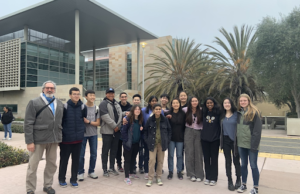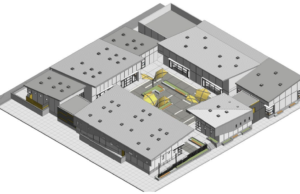The mesentary reclassified as the 79th organ
People know Leonardo Da Vinci as a painter whose most famous piece of work is “Mona Lisa.” A lesser-known fact is that he was also greatly fascinated by the human body and spent years studying anatomy.
Da Vinci’s sketches reveal one of the earliest depictions of the mesentery as a continuous structure, which supports its recent classification as an organ by Dr. J. Calvin Coffey, foundation chair of surgery at the University of Limerick, Ireland. Coffey’s research has already led to the well-known medical textbook “Gray’s Anatomy” to describe the mesentery as an organ.
The mesentery, by definition, is a fold of the abdominal membrane that attaches the stomach, small intestine, pancreas, spleen and other organs to the back wall of the abdomen. Another of its functions is carrying blood and lymphatic fluid to and from the intestine to other parts of the body.
According to CNN, Coffey stated, “It is unlikely that [the intestine] would be able to contract and relax along its entire length if it were directly in contact [with the abdomen]. It maintains the intestine in a particular conformation, ‘hitched up,’ so that when you stand up or walk about, it doesn’t collapse into the pelvis and not function.”
Researchers already know the mesentery has an important part in the intestinal, vascular, endocrine, cardiovascular and immunological systems; however, more research is needed in order to ascertain their exact roles.
The mesentery was not previously classified as an organ due to it being misunderstood as appearing in fragments within multiple parts of the body. Its spiral formation can only be seen at a specific viewpoint, which scientists were not able to discover for several years. This led to the belief that the mesentery was a complex structure with various sections.
The new understanding of the mesentery allows scientists to also possess a different perspective on the other organs in the abdomen. With more research into the mesentery, scientists will be able to determine how it acts abnormally and which diseases may cause it to react negatively.
In the future, mesenteric science may even become its own medical field, similar to neurology. In correlation with more knowledge about the mesentery, surgeries can be done with fewer complications, less invasive techniques, reduced patient recovery time and lower costs.



